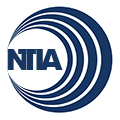On June 30, Ligado Networks filed a quarterly report to update the FCC regarding Ligado's exchange of information with federal agency GPS users. In an April 2020 order, the Commission authorized Ligado to deploy a mixed-mobile/terrestrial satellite broadband network using long-idle L-band spectrum. The order requires that federally-owned GPS devices potentially affected by Ligado's network are to be identified and then expeditiously repaired or replaced at Ligado's expense. However, federal executive agencies do not appear to be all that concerned about signal interference, since none of them have provided Ligado with any information about at-risk GPS devices.
Ligado's report states: "Despite our numerous requests, we still have not received any information about government devices that may experience harmful interference from Ligado's operations; indeed, we have not received any information at all from these agencies." The Department of Defense and some other executive branch agencies have opposed Ligado's next-generation wireless network, claiming in the press and in filings to the FCC that new operations in the L-band would interfere with federal users in adjacent spectrum. But if federally-owned GPS devices were truly at risk of harmful interference from Ligado's next-generation network operations in neighboring L-band spectrum, one would expect those agencies to provide information identifying those devices requiring repair or replacement, consistent with the requirements of the Commission's order.
Interestingly, NTIA seems to be in possession of the sort of information that has repeatedly been requested of it. Ligado has discovered communications between NTIA and other executive agencies from 2018 indicating that NTIA asked for and actually received information about federal GPS devices from at least some of those agencies. Adds Ligado's report: "It is unclear why NTIA has never provided this information either to Ligado or the FCC as called for in the April 2020 Order." Passing that information along would seem be a simple task. But the withholding of that data by NTIA lends further support to the idea that no federally-owned GPS devices are actually at risk of harmful interference.
Additionally, continuing radio silence by executive agencies in response to Ligado's requests for information raises doubts about NTIA's credibility in representing the executive branch on spectrum matters and in coordinating with the FCC on spectrum policy. On March 30 of this year, FCC Chairwoman Jessica Rosenworcel and NTIA Administrator Alan Davidson announced a new Spectrum Coordination Initiative that includes monthly meetings between the two agencies on spectrum policy and the establishment of a task force to update the agencies' memorandum of understanding (MOU) on spectrum coordination. The much-touted initiative, including an updated MOU, may yet bear fruit by facilitating a much-needed replenishment of scare spectrum resources for commercial uses, including next-gen wireless services. However, all the initiatives, agreements, and procedures for improving interagency spectrum coordination will seem like empty posturing if federal agencies refuse to cooperate with Commission orders and exchange information in good faith.





